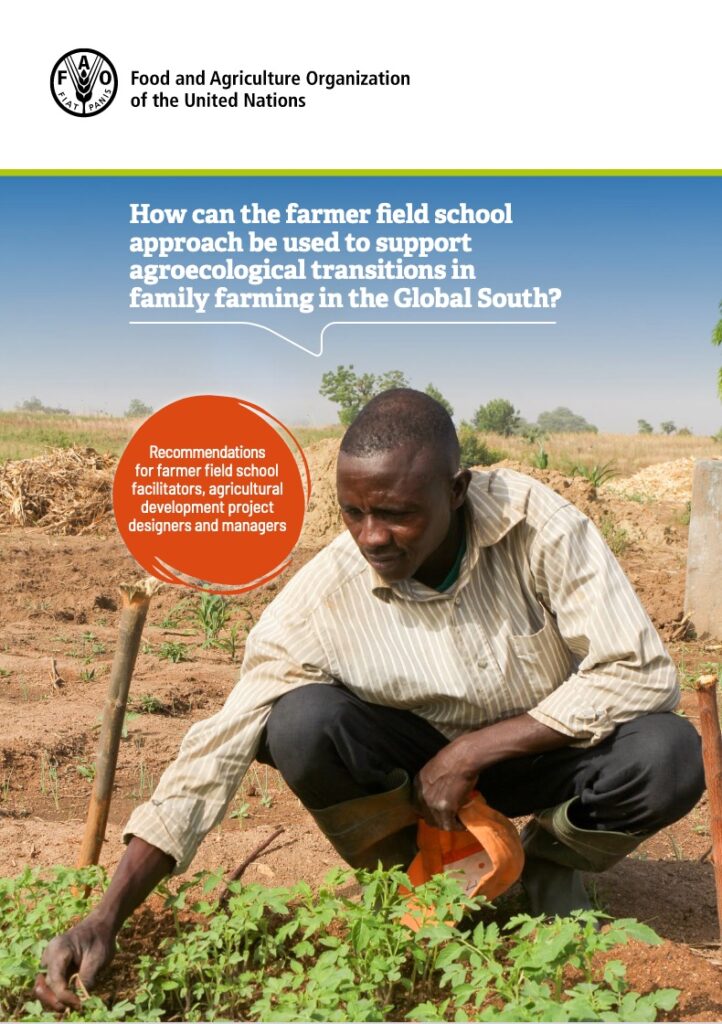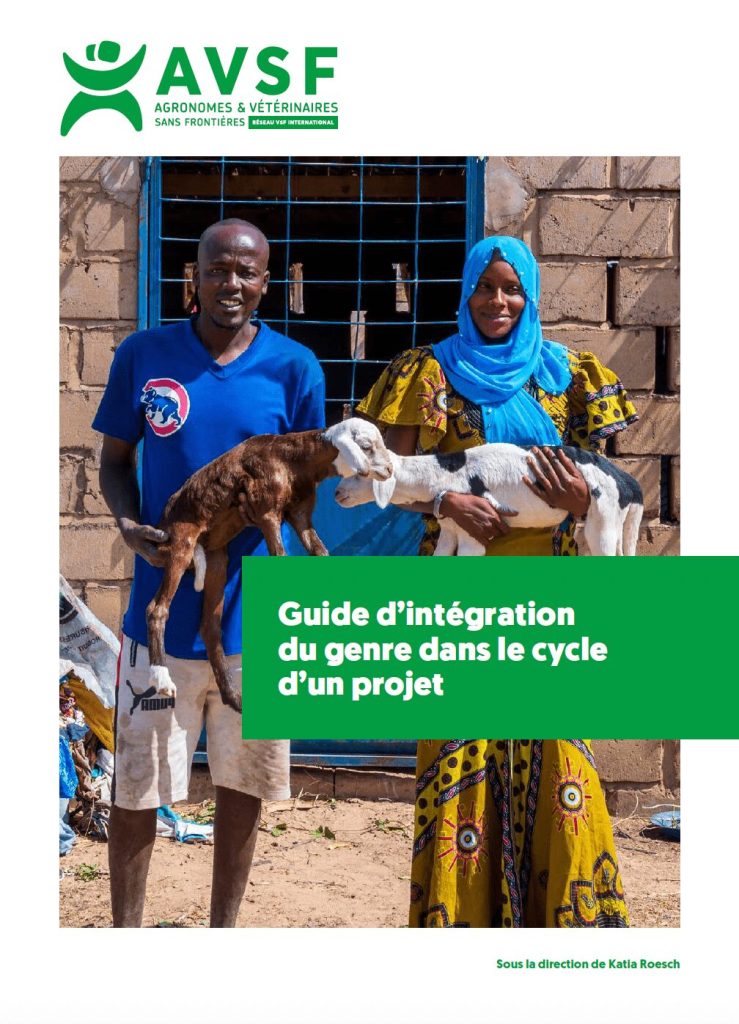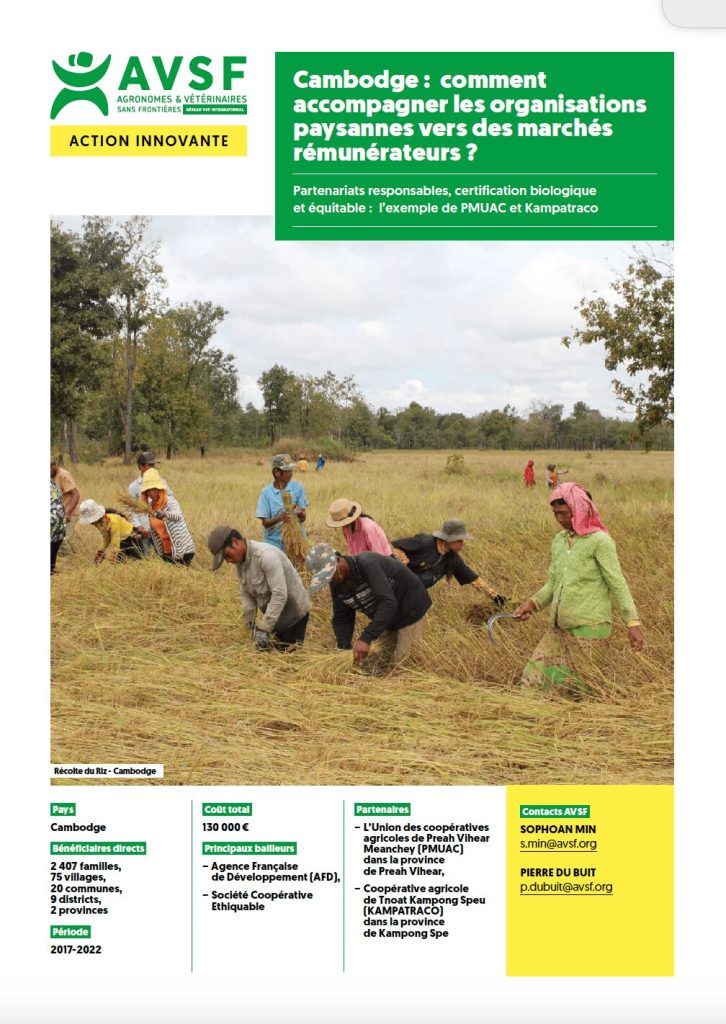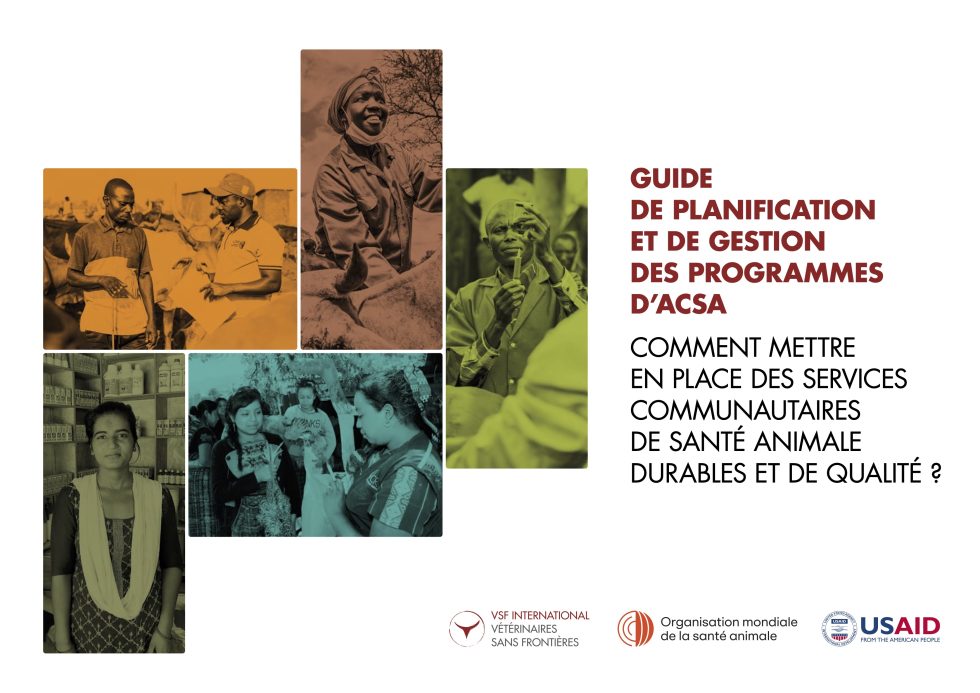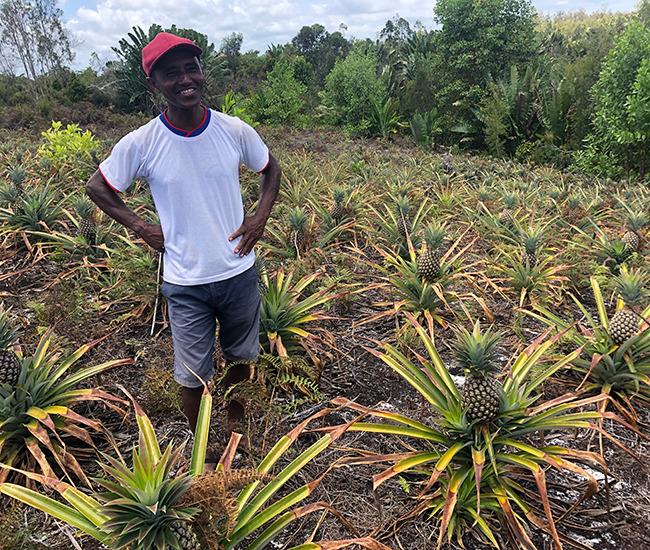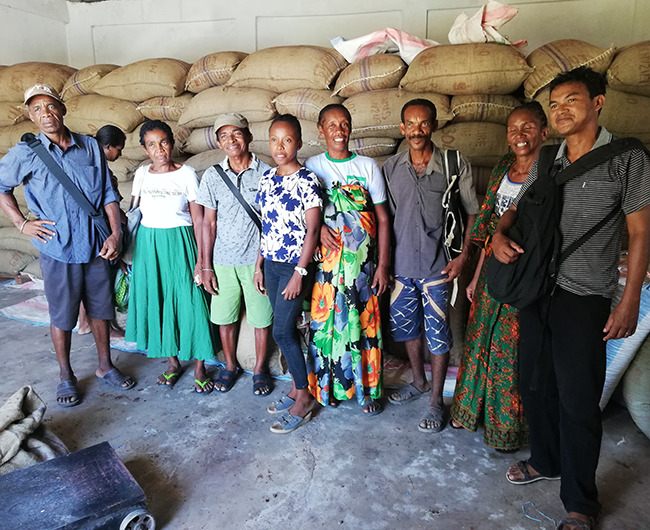How can the farmer field school approach be used to support agroecological transitions in family farming in the Global South?
The key to implementing farmer field schools (FFS) is to trigger an experimentation process based on collaboration between a group of farmers and a facilitator. The purpose of this document is to provide project managers, technicians and designers with practical information on how to use the FFS approach and adapt it to their context of intervention to support the agroecological transition (AET). It also will be useful for research staff, leaders of farmers’ organizations (FOs), teachers and students interested in using the FFS approach or better understand its benefits.
The findings and recommendations proposed in this document are the result of a partnership between three institutions working to support AET in the Global South: CIRAD, FAO and the NGO AVSF.
This document has four parts:
– Definition of the FFS approach and its principles, and characterization of the advantages of this approach to supporting family farm AET in the Global South, particularly in sub-Saharan Africa.
– Presentation of several important points for a successful FFS, i.e. to strengthen farmers’ skills to practically and collectively solve the problems they encounter.
– Recommendations for project designers and managers for including FFS in development projects.
– Proposal of ways in which FSS could evolve to better take into account the needs of farmers and other actors engaged in AET.
